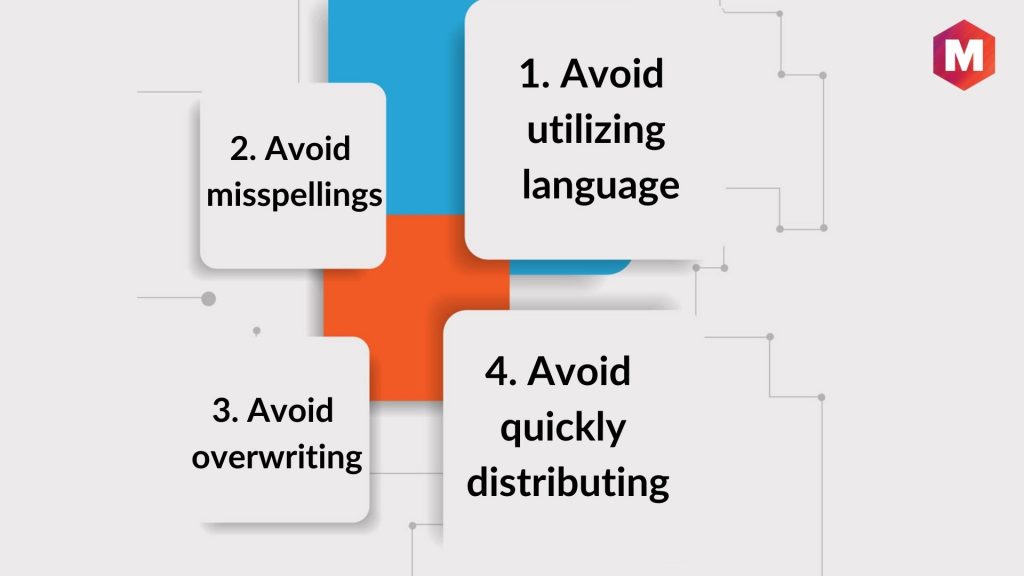Each time when you put your pen to paper or start writing a content piece using your keyboard, you get a chance to represent and communicate your business in the most efficient and optimized manner possible. Such representations incorporate primary marketing material, emails, and other forms of content. Contemporary innovations of marketing imply that assortments of audiences could read your written communication.
Most businesses nowadays have some kind of digital element in their activities, be it an online portal, email system, an online blog, social media, etc. Businesses are progressively directed digitally, and a convenient means of online business channelization is written communication.
The good standard of writing is essential to effective online presence and relationships of any, particularly with the existing and potential customers. This post will take you deep into the world of written communication and guide you about the most strong writing skills and best ways of using it in optimizing the reach, lead generation, and conversion of business. So, let us get started right away-
Table of Contents
Introduction to Effective Communication Skills
Writing as a form of communication has been a tradition as old as the oldest civilization in the history of humanity.
Did you know that employers rank written communication as one of the most desirable skills?
According to a 2019 survey by the National Association of Colleges and Employers (NACE), 82% of employers seek strong written communication skills in new hires. This underscores the crucial role that effective writing plays in the professional world.
“Good writing is not a natural gift. You have to learn to write well.” – David Ogilvy, renowned advertising executive, emphasizing the importance of honing writing skills in business.
Whether it is merely to record the information for the reference of later generations or better expression of oneself, writing letters has always been an excellent form of communication. It has evolved a considerable measure.
Writing is now used as an extensive form of communication.
It has even developed into various types that can thus be used depending on the need.
The goal, however, is universal – to impress one’s point of view and the ability to express a point as clearly as possible. It has now become indispensable to develop these skills and have good command over them.
What is the Written Communication?
Any type of interaction that makes use of written words can be referred to as written communication.
Written communication and oral communication are the two basic types of communication. While verbal communicationis effective, written notification is considered more formal in most cases.
In the modern world, it has become a necessity, and most businesses rely on it.
Different forms of written communication that are used often in business and are effective are memos, bulletins, electronic mails, job descriptions, reports, employee manuals, etc.
What are the different types of written communication?
There are many different types of written communication in the case of a business that can be used for some purpose or another. But all of these can be classified into three different types. These are as follows:
1. Transactional Written Communication
It refers to those written communications where a message is sent to get a response from the reader. It includes requesting a meeting, asking a favor, or a quick clarification.
The sender can choose the tone and voice because, ultimately, they will receive a message back. The best medium for this is usually an online medium. It is the fastest medium and thus most appropriate for transactional written communication purposes.
2. Informational Written Communication Skills
It includes the sender delivering a message for the benefit of the receiver. It is less dependent on the reader, and thus no response is required here except in case the reader has some queries or doubts.
It can be done through offline or online channels. Communication examples of this can be an email or a memo sent to an individual or a group.
3. Instructional Written Communication
It gives the receiver instructions or directions regarding a specific task. Thus, these messages should be detailed and easy to understand. It includes the basics, which is also a good idea to give the receiver a clear and thorough understanding of the topic.
The format here is more important than the method. Step by step instructions, along with making use of bullet points or numbering phrases is always advisable and a great idea.
What are the advantages and disadvantages of written communication?
Written communication is one of the most potent forms of communication. It has been in use for a long time. As this form of communication is evolving more and more, it is bringing about a significant change in the way communications are being conducted, especially in the world of business. It has many aspects, as well. Given below are a few advantages and disadvantages to this form of communication.
Advantages:
- There is no need to deliver the message in the spur of the moment immediately. It can be edited and revised several times before delivering it.
- They provide the receiver with ample time to read and review the message thoroughly before replying as well.
- It provides a permanent record of the messages and information exchange. These are easy to track and to study later.
Disadvantages:
- Instantaneous replies and feedbacks are not possible as it is in case of oral communication which sometimes leads to frustration and uncertainty in the business.
- These messages take more time to compose as well as more effort and skills.
How to achieve effective written communication?
Effective written communication is made of five elements. These five essential skills are:
1. Conciseness
Written communications need to be concise. The goal is to get your point across to your reader quickly and directly. When there are too many other words and no direct point, it does not get the desired results.
2. Clarity
This is essential to make your reader understand what you are trying to convey. When you have clarity in your writing, even if the reader does not understand your content thoroughly, they will know what doubts and questions they need to ask to understand it further.
Clarity can be achieved by writing in simple language and providing specific and robust information.
3. Active voice
Active voice is simpler and more comfortable to follow as compared to passive voice. Thus it is advisable in practice to use active voice in your writings rather than a passive voice.
4. Tone
Tone concerns itself with the way you are writing and the emotions it conveys along with the reactions it extracts. The tone should always match your relationship with the readers.
For example, written communication in case of business must always be professional.
5. Grammar and Punctuation
Correct grammar and punctuation make the writing more appealing and prove your point more accurately.
Other tips and tricks that can be followed to improve written communications are:
- You must know your goal and target audience before writing.
- Include the details that are important to know.
- You can make use of outlines to present a clear and well-organized report.
- It is crucial to edit your work thoroughly.
In addition to these, let us now have a look upon some of the easy hacks of effective writing communication to improve your business skills-
4 Easy Hacks of Effective Written Communication
Solid written communication abilities are essential to channel your creativity and growth in your profession.
So the question that pops up here is how to make your written communication correspondence compelling in a contemporary business scenario? The very primary thing here is being exact, precise, and making your written messages very concise.
Here are 4 viable written communication hacks to assist you in your business communication, whether it’s a business letter, email, memo or any other form of your business communications content-
1) Choose the right stationery
To be highly impactful, your written communication in business is best channelized utilizing the right business stationery.
This implies that your business letter ought to be written or printed on the letterhead of your company. Even for the memos and other forms of communication, the same rule is applied.
When sending emails, you should add the logo of your company to the message.
You should also utilize your discretion for incorporating other company details such as contact numbers, office address, and email address, and so on to your message.
2) Use simple language
For effective written communication, you should maintain a strategic distance from complex words. It is suggested to utilize simple words and short sentences to make your piece brief and direct.
You should also utilize specialized or technical language or jargon just when essential – like when you are talking about technical kinds of stuff or specific information. Excessive use of capital letters in your written message suggests that you are SHOUTING at the beneficiary. Along these lines, simply dodge using CAPS LOCK in your written pieces.
3) Write a well organized/structured message
When you use a well-structured message, it will have an introduction, a body, and afterward a conclusion, ideally one paragraph for each section. It should include the purpose behind the communication in the intro segment.
Then you should give topic details in the body section so that it can be longer than one paragraph. You should also try to restrict the whole communication to a single page.
Finally, you wrap up with a summary and a CTA in the end. CTAs or Calls to Action imply that you are requesting the beneficiary to perform a specific action like calling or emailing you back.
4) Always proofread
To optimize your written communication, you need to remember to proofread your content piece. You should read cautiously and utilize the proofreading tools to address any sort of mistakes in your content pieces.
If you make spelling or grammar mistakes in your piece, it makes a wrong impression on your professional image, particularly when it is written communication in business. For result-driven trust-building with your audiences, you should always proofread your content.
Along with the knowledge of these tips for effective written communication, you should also be aware of different things that you should avoid your written content pieces. Let us go through them as well.
Here is a video by Marketing91 on Written Communication.
Things to Avoid in Professional Written Communication
Along with knowing all things essential to include in your written pieces, it is additionally imperative to comprehend what to avoid for making your content pieces effective. Here are a few points of focus and avoidance to pay heed upon-
1. Avoid utilizing language that can befuddle, obscure or insult the readers
While writing, you should understand that the more basic and direct your language is, the more powerful its impact will be.
You should avoid slang, sarcasm, mockery, irreverence, plus you should also limit the utilization of jargon, technical phrases, or some buzz expressions.
You should come to your meaningful conclusions plainly and briefly, so don’t distract your reader with superfluously huge or improper words.
2. Avoid misspellings, lousy sentence structure, inadequate sentences, or long passages
This is quite obvious for sure. You’d be astounded at what numbers of documents are shared and immediately diminished by such rudimentary slip-ups of language structure and writing style.
You have to avoid all such mistakes. Spell checking, proofreading, and editing resemble are inevitable for avoiding all such issues.
3. Avoid overwriting in your written pieces
While doing written communication, overwriting is a common issue that you should always avoid. You should utilize the words correctly, financially, and precisely.
That is why, while writing, you should remember that, like every other person these days, your readers also have a limited measure of time to go through your written piece. Therefore, it is essential to make the most of your words.
Your written pieces should be fresh, clear, and compact to optimize your chances of gaining favorable outcomes from your written communication.
4. Avoid quickly distributing whatever you have written in an elevated enthusiastic state
When you write a piece in a heightened emotional state, aggravation, or anger, it is suggested to wait for at least 24 hrs before publishing that.
Does not matter how enticing it might seem; you should avoid publishing it. Consider it and check whether you have a similar feeling the following morning or not. For effective written communication, you should manage not only your writing but also your emotions.
Final Thoughts about Written Communication!
Communication is essential to achieve success and thus should be used in a way where it always serves a purpose.
Written communication has become a great way of communication, especially in work-related and professional situations. It allows for a less threatening environment. Written communication carefully eliminates the criticality of verbal communication and personal interaction.
It can be used as a supplement for formal as well as informal discussions. Written communication has become an essential part of today’s world.
Many firms are even providing classes and help the employees to improve their writing skills. It is widely used and has many advantages. It is one of the sophisticated forms of communication and has the power to achieve and impart any desired effect and intended message.
Paying attention to all the tips mentioned above will, for sure, ensure to create a far more unique possibility of achievements in your professional as well as personal life.
What are your thoughts about the importance of effective written communication in contemporary business scenarios?
Liked this post? Check out the complete series on Communication


